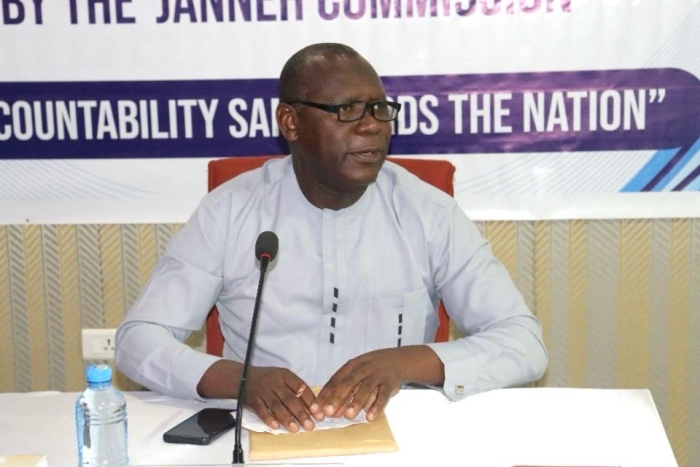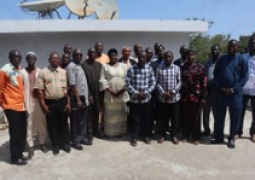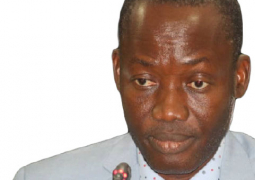
He acknowledged taking part in pricing, mobilising livestock, and even signing official sale records, while introducing a complete stranger into the process.
The revelation came during tense questioning by the committee investigating the disposal of assets identified by the Janneh Commission.
According to Jallow, he was sent by the Attorney General in January 2018 to attend cattle sales at Kanilai Farm as a witness. But his testimony showed his involvement went well beyond observing.
“I have to be honest. I participated in the sales. I helped them very well,” Jallow told the committee, eventually conceding that he acted beyond the specific instructions he was given.
Committee’s counsel repeatedly challenged Jallow on why a senior executive branch official whose instructions were limited to observation was assisting the judiciary’s Sheriff in pricing livestock, mobilising cattle, and signing official sale records.
Initially, Jallow denied overstepping. But when pressed further, he admitted, saying he had done more than what the Attorney General asked of him.
He justified his actions as necessary support to the Sheriff, saying, “Whatever I do on the ground, there is also another authority who could permit that and that was within my bounds.”
Jallow accounts how a man named Amadou Kora, became involved in the sale. Jallow testified it was the first time he had ever met Kora, describing how the stranger approached him at the sales ground claiming expertise in livestock pricing.
Jallow said he promptly introduced Kora to the Sheriff, who approved his participation. “He is well-known,” Jallow told the committee, recalling how everybody was talking about Kora upon his arrival.
Counsel questioned the wisdom of allowing an unknown outsider whose role was neither official nor vetted by the Ministry of Justice to participate in a judicial sale of state assets. Jallow defended the move, saying Kora’s input was invaluable and insisting he had no prior relationship with him.
He disclosed that he also signed sales record prepared by the Sheriff’s office – a decision he later called “strange” and “unnecessary.”
He admitted he did not verify the figures before signing, only to discover later that the reported amounts far exceeded what he believed had been sold.
“I should not have signed this document really,” Jallow conceded. “But maybe they thought since we are there, it was important that we sign.”
Throughout the session, counsel emphasised the constitutional separation between the executive and judicial branches, suggesting Jallow’s actions blurred those lines.
“You work for the Attorney General, not the Sheriff,” counsel reminded him. “The Attorney General said, ‘Go and observe.’ Instead, you gathered cattle, priced cattle and signed judicial sales record.”
Jallow maintained that his actions were within boundaries because the Sheriff, who had authority over the sales, approved his assistance. But he conceded there had been no prior discussion or formal request for him to take on those tasks.
Read Other Articles In Headlines




